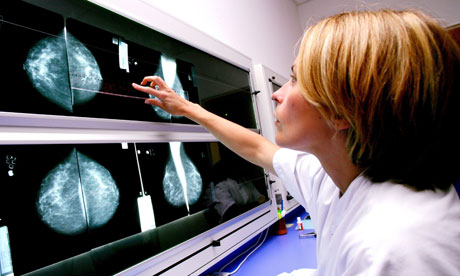
Private health screening companies are using scare tactics to persuade people to part with their cash, according to leading medical practitioners. An increasing number of companies offer screening for everything from coronary heart disease to celiac disease and cancer of the colon. They advertise in the national press, online and some also mail people directly.
The companies offering these services write to potential customers inviting them, ahead of arriving in an area, to a screening day at a local venue.
The packages offered vary. One company, Lifescan , for example, runs testing and assessments including checking a single mole for £75 up to a £1,010 package aimed at the over 45s, which includes low-dose CT scans of the lungs, heart checks and a virtual colonoscopy.
Another company, Prescan , advertises breast awareness consultations from £250 and brain scans for £1,280 on its website. The site includes a quote from Dragon's Den star and entrepreneur Duncan Bannatyne: "My trip to Prescan gave me peace of mind."
However, Laurence Buckman, chairman of the BMA's general practitioners' committee, says that when it comes to health you cannot buy peace of mind in this way: "I am very sceptical of the claims made by screening companies."
Buckman points out that if you get a clear result on an EGC, for example, it does not mean you are not going to have a heart attack, yet companies do a hard sell on the "reassurance" factor.
"Healthcare screening by private companies is a waste of money," he says. "If anyone receives one of these direct marketing letters, I suggest they put it straight into the bin."
George Shaw, 55, who works in marketing, had private healthcare screening last year: he didn't pay for it personally – it was done through work – but it cost £450. The tests included an ECG, a blood test for cholesterol, a lung scan, weight and height measurements.
"It's not worth the money considering what's available on the NHS," says Shaw . "For what I actually needed, the cholesterol test for example, I could have had done at my GP practice for free."
In the NHS, screening programmes are targeted at those with higher risk factors. The screening programmes – such as mammograms for women between 47 and 73 – are offered only when research has shown the screening offers greater benefit than harm.
Others outside this age bracket can be eligible for screening on the NHS if their family history, for example, places them at higher risk. There are also NHS general health checks available in some areas but opinion is divided among medical practitioners to whether these are worthwhile.
Screening is always a balance between risk and benefit, says Margaret McCartney, a Glasgow-based GP and author of The Patient Paradox.
"Many private companies oversell the benefits and often underplay the risks, and result is that some patients are being ripped off," she says. "If you think you need screening, discuss it with your GP to see what's available on the NHS. No sales tactics, and it'll be free."
Instead of getting screening, doctors say that most people would be better off simply not smoking, drinking to excess or being overweight, taking exercise and doing work they enjoy.
The associated risks of the screening include the exposure to radiation in CT scans, for example, and the anxiety caused when a condition is discovered for which the person does not necessarily require treatment.
A Which? investigation published in March last year, found that companies are not making customers aware of the risks of doing CT scans on otherwise healthy people.
A healthy Which? undercover researcher was offered a lung scan by four out of five expensive screening companies despite an independent government committee advising the practice should be stopped. While four out of five companies told the researcher about radiation risks, three failed to mention other downsides such as false positives or negatives.
The companies, however, claim they do explain the risks of the screening to potential customers. And according to Life Line Screening, criticism of private health screenings fails to account for the context in which screenings are taking place, the notion of individual choice and the value to the customer – and potentially the state – in the event of early diagnosis of asymptomatic conditions. For example, it says that it has detected over 2,500 cases of abdominal aortic aneurysm in the last four years.
John Coltart, medical director, of Life Line Screening UK says that testing is designed to highlight these risk areas and to encourage its customers to discuss these risks with their GPs to ensure that the most appropriate treatment protocols are being adopted.
But McCartney, along with several other health professionals, including Charles Warlow, emeritus professor of medical neurology at Edinburgh university remain unconvinced. To help those deciding whether to opt for private health screening, they have set up consumer education site Privatehealthscreen.org.
"The situation with these private for-profit health screening companies is getting worse," Warlow says. "Some people are being completely taken in by the sales and marketing tactics.
"If you do get a marketing letter or see an advert that uses scare tactics like this, I'd recommend making a complaint about it to the General Medical Council ."

